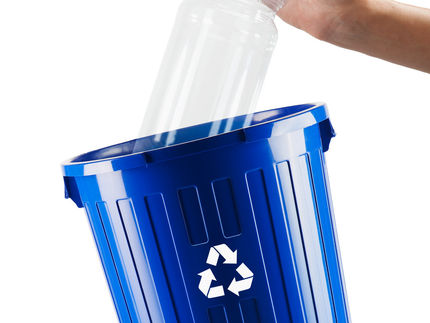Upcycling of PET Bottles: New Ideas for Resource Cycles in Germany
Advertisement
The new research project, UpcyclePET, is developing an innovative process for high quality cycle utilization of polyethylene terephthalate (PET). This research project enables the recovery of PET waste from plastic bottles to be used in high-grade industrial applications, and it targets to reduce the use of new polyamide-based plastic parts. The project team consists of the company EASICOMP GmbH, the Fraunhofer Institute for Structural Durability and System Reliability LBF, and the Institute for Applied Ecology (Öko-Institut e.V.). Further details on these studies will be presented at the Compounding World Expo 2018 in Essen, from June 27 to June 28, at booth 707.

Upcycling of PET Bottles: New Ideas for Resource Cycles in Germany
Fraunhofer-Institut für Betriebsfestigkeit und Systemzuverlässigkeit LBF
Upcycling Instead of Recycling
Dr.-Ing. Tapio Harmia, CEO of EASICOMP, explains: “We would not like to use recycled PET just for plastic bottles, but would also like to use it in the production of durable and long lasting products.” “This idea is called upcycling." Dr. Volker Strubel, coordinator of the project, adds: “With this upcycling we are creating lightweight components out of fiber-reinforced recycled PET, and are thus reducing the use of glass fiber reinforced polyamides typically applied in the production of automotive parts, e.g. engine mounts or cross members.”
For the project UpcyclePET the partners are drawing on knowledge from the material and process development, in order to create an integrated manufacturing process for the production of fiber-reinforced PET components. A pultrusion process is used in order to reinforce the PET with long glass fibers and thus to upgrade PET technically. This kind of approach combines the mechanical advantages of the very strong long glass fibers with the special properties of PET. The lower swelling capacity and good dimensional stability are part of these properties. “This approach combines two processing steps that are separated in modern practice and customizes the properties of the recycling PET by chemical modifications and suitable addition of additives,” explains Dr. Frank Schönberger from Fraunhofer LBF.
The production is cost effective, since all necessary processing steps are completed in one manufacturing plant. The project team uses a lightweight component from the automotive industry in order to evaluate the potential for technical replacement of the materials and demonstrates possible ecological as well as economic advantages. Dr. Andreas R. Köhler from Öko-Institut explains: “We are expecting an innovation boost for high quality plastics recycling in Germany from the UpcyclePET project. Upcyling of PET waste has significant potential as an environmentally friendly solution, since it facilitates the creation of long lasting products, while also serving as a replacement for plastics with much higher greenhouse gas emissions.”




































































